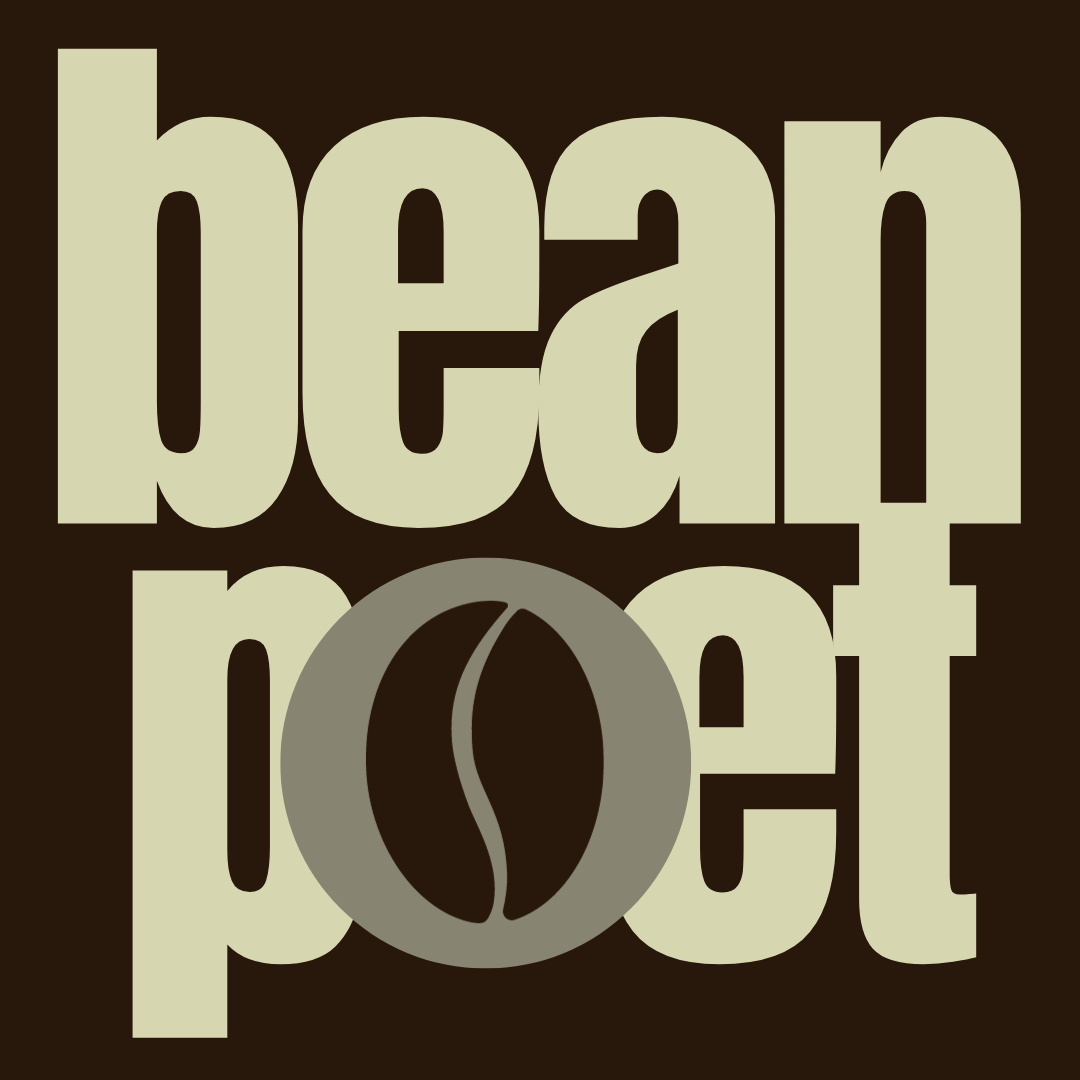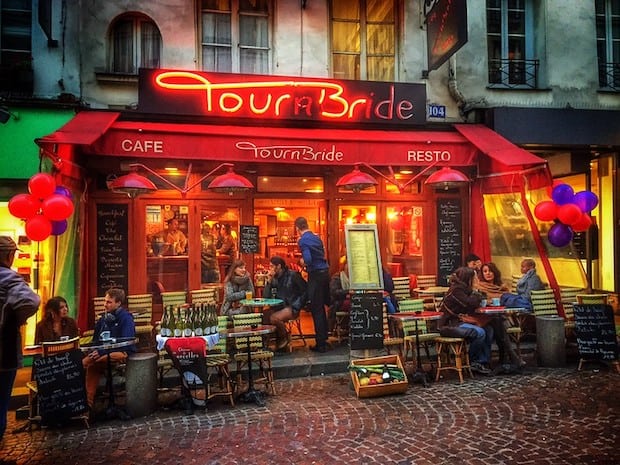Last Updated on November 5, 2023
When you think of France, you likely picture meandering cobblestone streets and charming cafés steeped in history and tradition. This romantic vision is one we conjure with longing and nostalgia whether we’ve been to France or not.
When you do visit, you’ll surely be swept away by the enchanting café culture—but you might be disappointed by the coffee itself. The French favor the harsh and often bitter Robusta coffee bean, which hearkens back to colonial days when the beans were imported to France duty-free. They continue to dominate the marketplace today, thanks to a few large companies. So if you’re used to a smooth, balanced blend from a small independent producer, brewed to perfection by your favorite barista, you might be disappointed by the coffee in France.
Don’t worry, you’ll still love to while away the days in a cozy Parisian café.
History of French coffee culture
France has a rich history of café culture that dates back to the 17th century. The iconic Café Procope, opened in Paris in 1686, was the first shop to sell coffee that wasn’t from a cart on the street. However, it wasn’t the drink itself that enticed its patrons, but the community it fostered. The lush and inviting interior encouraged people to gather and linger, and the Café Procope became a base for resistance and revolution. It was a clubhouse of sorts for the artistic and political rabble-rousers of the time.
French cafés were the epicenter of the Enlightenment and cultural revolutions of the 17th and 18th centuries, bastions of counterculture and artistic freedom. However, this was typically the purview of upper-class white men, so café culture was by its very nature exclusionary. As the country was thrown into turmoil and eventual revolution, cafés remained sacred spaces for the sharing of ideas and dissemination of knowledge. This continued into the modern era. Your neighborhood café was where you went to meet your peers and get the news of the day.
Today, another revolution—of the digital variety—poses a threat to this iconic culture.
Current French coffee culture
Café culture throughout France is in decline. Many shops have closed in the past two decades. Several factors likely contribute to this, but the main drivers are probably the smoking ban enacted in 2008, the rise of the digital age, and the rather slow adoption of a worldwide trend toward higher quality artisanal brands.
People still smoke in France. They like to be able to lounge in a courtyard with their coffee and a cigarette. The smoking ban came into effect as home coffee machines were on the rise. More people began staying home where they could enjoy their morning coffees and cigarettes as they pleased.
Of course, people no longer rely on cafés for community information or the gossip of the day. They can simply email, text or follow each other on social media to get the play-by-play of their friends’ daily lives. You no longer need to wander down to your local café to keep up, now that local and international news is just a click away. Cafés were once inspired places of cultural diffusion, but they are becoming relics of a romanticized past.
There is hope, however, in the gradual rise of artisanal cafés. A new generation of café owners have recognized the appetite for better coffee in the French market and are pairing the charming atmosphere of cafés past with higher quality coffee beans and more transparent supply chains. The French are less loyal to their coffee traditions than those in Italy, and it’s a culture that has always been willing to shell out a few extra bucks for the finer things in life. The French are starting to warm up to this modern style of café, which could be the key to rejuvenating and reinventing French café culture.
Cultural contributions
They didn’t invent the espresso machine or develop any groundbreaking techniques—even the origins of the French press are in dispute—but the French made café culture iconic. French culture is about slowing down and connecting with your community, whether you’re sipping a cappuccino or enjoying a lovely local wine in the afternoon. If you’ve ever dined with someone French, you know they cannot be rushed! A three-hour lunch or dinner is common. They value the simple things that make life feel rich. We may not wish to adopt their coffee preparation, but we can certainly learn from their joie de vivre.
Etiquette
Coffee etiquette in France takes many of its cues from Italian coffee culture. Milky coffees are traditionally reserved for the morning, to be eaten with a pastry perhaps. Espresso is the most common style enjoyed throughout the rest of the day, and is not typically paired with food but rather as an afternoon pick-me-up or after a meal.
You can have a quick espresso, Italian-style, standing at the bar, and this will tend to be cheaper than sitting at a table. However, this is where the French differ from their Italian neighbors. People-watching is a national pastime in France, and sitting in a café for hours watching the world go by is not uncommon. If you do plan to stay, never order at the bar and take your drink to a table as you would in North America. This is a major faux pas, and in a country where they take time to warm up to tourists, you don’t want to stick out any more than you have to.
You’ll rarely find coffees being offered to go, because French coffee culture is one of lingering leisure. It’s about gathering with the community and enjoying a moment of repose. You’ll never be rushed to leave. If you just can’t do without a coffee in hand as you stroll the Champs-Élysées, you’ll probably have to get it from one of the larger coffee chains, which is also your best option if you like North American sugary types of coffee, or require a dairy alternative.
Most cafés or brasseries typically serve food. If you don’t plan to eat, never sit at a table that is already set with plates and cutlery. These are reserved specifically for those who wish to dine. Brasseries, which originated as a sort of brew pub, typically serve alcohol and have more extensive food menus, but the line between cafés and brasseries is becoming increasingly blurred.
You can still find a simple coffee bar for a quick espresso. These are often combined with tabacs, which offer tobacco and lottery as well. They have an authenticity to them but lack some of the charm and romance you’ll find in larger cafés or brasseries.
What to order
The French pride themselves on local wine, cheese, and myriad other gastronomical delights, but have curiously failed to bring that same passion to their coffee consumption. As mentioned, there are both historical and contemporary factors that contribute to the predominance of the less sophisticated Robusta bean over its subtler, higher-quality counterpart the Arabica bean. Robusta coffees can be dark, strong, and aggressively bitter, but even in the preparation the French have remained rather traditional and unimaginative.
You will rarely find a menu in a French coffee shop, but most places serve basically the same few things. You’ll want to familiarize yourself with the typical offerings:
- Café: If you order a café, you will receive a shot of espresso, the most common offering.
- Café au lait: A coffee with milk. In North America you would expect a filter coffee with hot milk, but in France you will most likely receive a shot of espresso topped with steamed milk, something much closer to a latte.
- Café noisette: A single shot of espresso with a dash of hot foam, like a macchiato.
- Café crème: An espresso topped with more foam, closer to a cappuccino.
- Café allongé: Espresso topped with hot water, similar to an americano.
- Café filtré: Filter drip coffee. It’s quite uncommon, but you can always order an allongé instead.
Final thoughts
France is not short on charm. Their cafés, although somewhat in decline, are still a large part of what draws people to the country. When you visit you will certainly spend many afternoons lounging in cafés and soaking up the French culture. If the trend toward independent artisanal shops continues it will become increasingly easy to find an elevated cup of coffee while still basking in the romantic history of the past.
Image at top: © Jim Nix | Creative Commons


